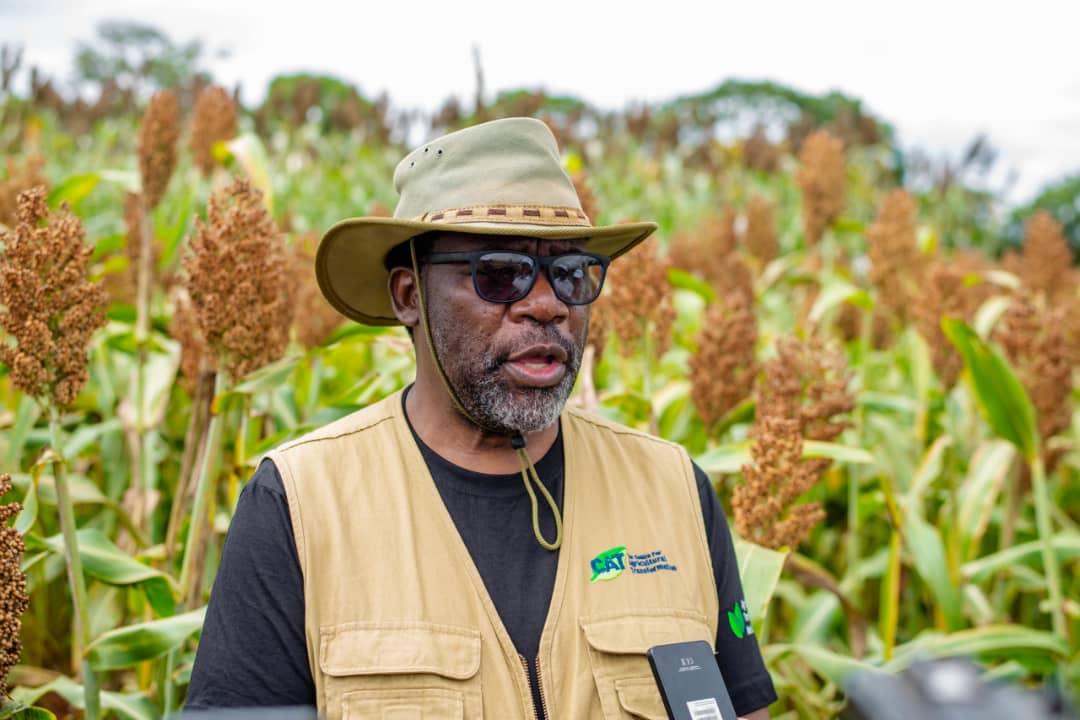The Executive Director of the Centre for Agricultural Transformation (CAT), Macleod Nkhoma, has expressed optimism that Malawi can regain its food security through the adoption of smart agriculture technologies.
Nkhoma made the remarks in Lilongwe during a farmer field day aimed at showcasing climate-resilient and diversified crops, designed to help farmers maximize productivity on small plots of land.
“Despite the challenges posed by climate change, there’s still a great deal we can do to boost agricultural yields in Malawi,” Nkhoma told YFM. “Much of our land is degraded and in need of serious soil restoration. On top of that, delayed access to fertilizer continues to hinder productivity.”
He highlighted CAT’s efforts under the Agricultural Transformation Project, which aims to equip farmers with practical skills to improve yields.
“Many of the farmers we support through our agri-clinics across the country have significantly increased their productivity,” he said.
“For instance, one lead farmer in Salima who used to harvest 800 kilograms of groundnuts per hectare is now producing 2,400 kilograms on the same plot.”
Nkhoma emphasized that although it is a process, collective effort can restore Malawi’s self-sufficiency in food production.
“There was a time when Malawi had a maize surplus of 1.5 million kilograms, some of which was exported. We can achieve that again if we work together as a nation,” he said.
The financier of the project, the Global Action to End Smoking – Agricultural Transformation Initiative (GA-ATI) through Dr Candida Nakhumwa, Vice President and Country Director for GA-ATI, expressed satisfaction with the progress made since the project’s inception in 2019.
“We are pleased with CAT’s achievements so far. Although relaying the message to farmers has not been an easy task. Farmers have had many questions about crop types and market access but now the rate of technology adoption is encouraging,” said Dr. Nakhumwa.
“We now need to focus more on market development and value addition, so that farmers not only produce more but also sell their products, even beyond our borders.”
One of the beneficiaries of the project, Gladys Kamchacha from T/A Mbwatalika in Lilongwe, shared how the initiative has transformed her life.
“Life has changed. I now own goats thanks to the project, and we have learned livestock crossbreeding techniques that are improving our breeds. The manure from the goats helps reduce our reliance on chemical fertilizers. We are harvesting more than ever before,” she said.
Another farmer, Emmanuel Endemani Mwale from Madisi in Dowa, also testified to the project’s impact.
“Previously, we harvested very little, which led to constant hunger. But since CAT trained us in smart farming techniques, we now harvest more from the same land using less inorganic fertilizer,” he said.
“In the 2023–2024 farming season, I harvested five ox-carts full of maize, compared to just one in past years. I have also diversified into soybeans and groundnuts.”
Deputy Director for Field Crops in the Ministry of Agriculture, Osborne Tsoka, emphasized the importance of fully adopting smart agriculture practices.
“As demonstrated by CAT smart farms, maize yields can increase from 2.3 metric tonnes per hectare to between 8 and 10 metric tonnes. This can significantly contribute to national food security. Our annual national maize requirement is around 2.9 million metric tonnes. With continued improvement and adoption of these technologies, we could produce up to 5 million metric tonnes and generate a surplus,” Tsoka explained.
The farmer field day, organized by CAT, was held at its smart farm located at the Natural Resources College (NRC) in Lilongwe. The event was themed “Climate-Resilient Agricultural Technologies and Crop Diversification for Sustained Household Food Security.”





